Desire for regime change leads prosecutor general to presidency
Former top prosecutor handpicked by Moon pledges to make society fairer
Published : 2022-03-10 11:02:08
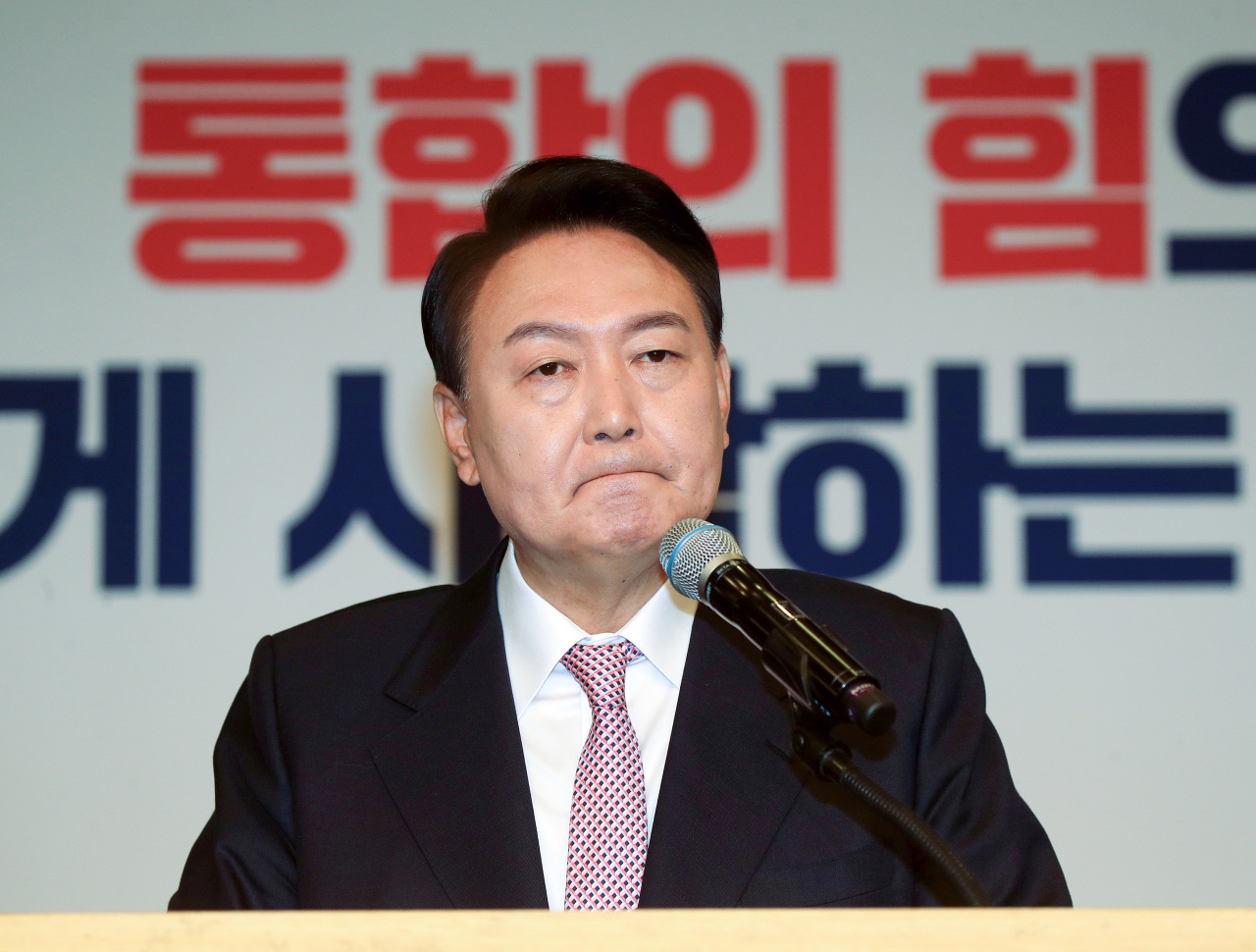
On June 29, 2021, a political novice declared his bid for the presidency, vowing to achieve a transfer of power away from the administration that took him to the peak of his profession.
Riding on the back of a public desire for the same goal, it took him only nine months to make good on his promise.
Yoon Suk-yeol was an aggressive, hard-nosed prosecutor, helping to convict former presidents and business tycoons on corruption charges. His unyielding reputation eventually led President Moon Jae-in to handpick him as his chief prosecutor.
But Yoon’s unbending nature eventually put him at odds with the Moon administration. When the prosecution turned its sights to close aides of the president, relations soured, and eventually led Yoon to resign and enter politics.
Yoon was born in Yeonhui-dong, Seoul, in 1960. Both of his parents were educators. His father was Yonsei University honorary professor Yoon Ki-joong and his mother was Ewha Womans University professor Choi Jeong-ja.
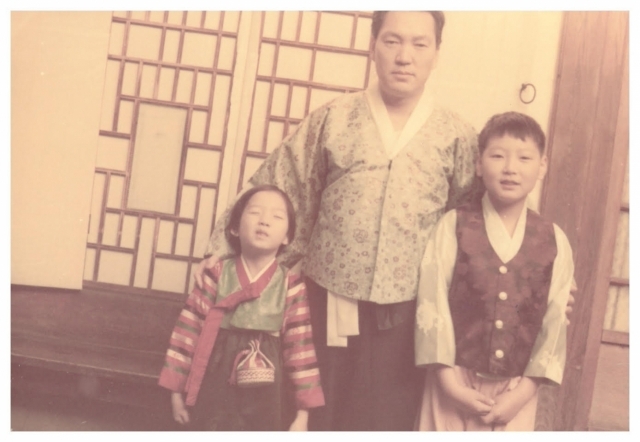
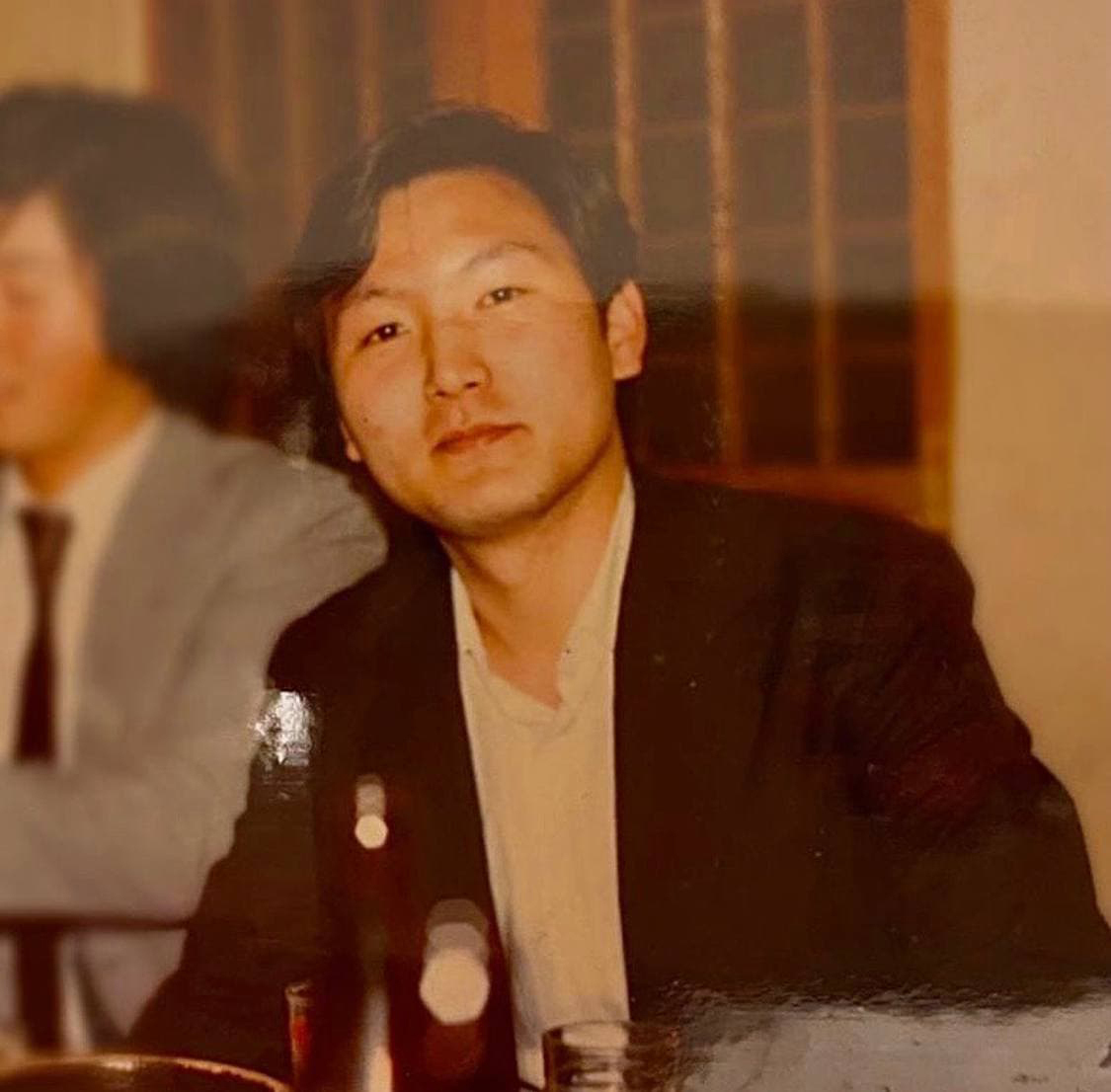
At first, he wanted to study economics and had no dream of becoming a judge or prosecutor. But his father advised him to study law, saying he could later study economic law. In 1979, Yoon entered Seoul National University as a law major.
Ten days before the May 18 Gwangju Democratic Uprising took place, Yoon joined a mock trial held on campus as a judge. He sentenced Chun Doo-hwan -- who was at the time the military’s security commander -- to death, and then-Prime Minister Shin Hyun-hwak to life in prison. As the story spread in school, he took refuge at the house of one of his mother’s relatives in Gangneung, Gangwon Province, for three months.
Yoon wanted to be an economic law professor and thought it was necessary to pass the bar exam to justify his place at the classroom lectern. But he threw himself into socializing and drinking, and he failed the exam eight times. At the ninth attempt, he passed the exam in 1991.
Career start at 35
Ten days before the May 18 Gwangju Democratic Uprising took place, Yoon joined a mock trial held on campus as a judge. He sentenced Chun Doo-hwan -- who was at the time the military’s security commander -- to death, and then-Prime Minister Shin Hyun-hwak to life in prison. As the story spread in school, he took refuge at the house of one of his mother’s relatives in Gangneung, Gangwon Province, for three months.
Yoon wanted to be an economic law professor and thought it was necessary to pass the bar exam to justify his place at the classroom lectern. But he threw himself into socializing and drinking, and he failed the exam eight times. At the ninth attempt, he passed the exam in 1991.
Career start at 35
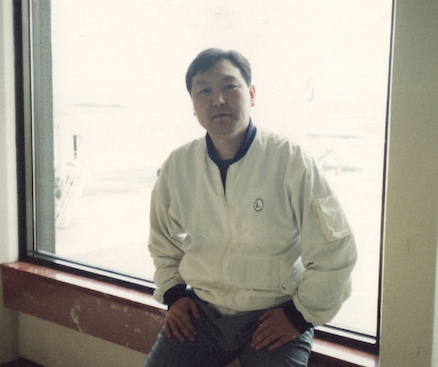
At 35, he was appointed to the Daegu District Prosecutor’s Office as a first-time prosecutor. He briefly moved to a law firm in 2002 but soon returned to the prosecution a year later.
His career in high-profile cases began after his return.
In 2003, he helped arrest and investigate An Hee-jung and Kang Geum-won, close aides to the then President Roh Moo-hyun, over presidential election funding scandals. In 2006, he was in charge of a case centered on Hyundai Motor slush funds. In 2008, he participated in the special prosecution as a dispatched prosecutor for the “BBK stock price manipulation incident,” that involved the then-presidential candidate Lee Myung-bak.
His career in high-profile cases began after his return.
In 2003, he helped arrest and investigate An Hee-jung and Kang Geum-won, close aides to the then President Roh Moo-hyun, over presidential election funding scandals. In 2006, he was in charge of a case centered on Hyundai Motor slush funds. In 2008, he participated in the special prosecution as a dispatched prosecutor for the “BBK stock price manipulation incident,” that involved the then-presidential candidate Lee Myung-bak.
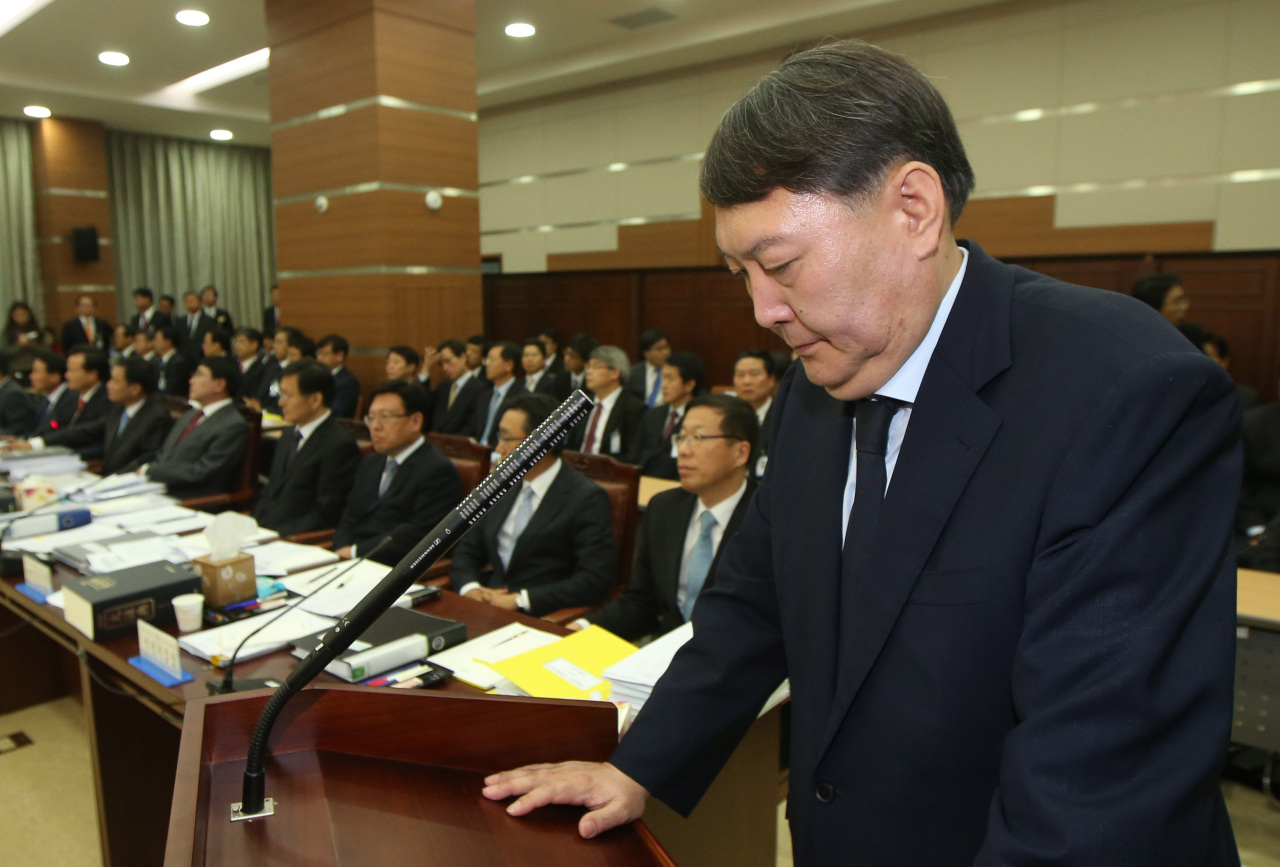
The year 2013 was the most tumultuous of his career as a prosecutor.
At the time, Yoon was head of the team investigating the National Intelligence Service’s interference in the 2012 presidential election and domestic politics. He took the position that NIS head Won Sei-hoon should be charged with violating the Public Official Election Act, but the move was allegedly blocked by those higher up in the chain of command.
In the fall of that year, Yoon revealed during a parliamentary audit that there was severe “external pressure” during the investigation. Yoon said, “I am only loyal to the organization and not loyal to a person.”
Turmoil in prosecutor career
After the revelation, he was demoted to a general prosecutor of the Daegu High Prosecutors’ Office and for years he was posted to various provincial prosecutors’ offices. He once said during a newspaper interview that his co-workers “felt uncomfortable with me. So I often ate alone.”
However, when the massive corruption scandal involving former President Park Geun-hye, political and business heavyweights broke out in the fall of 2016, Yoon was brought back to the center of the prosecution. A special prosecution team was launched to investigate the matter, and special prosecutor Park Young-soo appointed Yoon to head it.
Yoon relentlessly investigated all people involved in the scandal and indicted former President Park and Samsung Electronics Vice Chairman Lee Jae-yong.
At the time, Yoon was head of the team investigating the National Intelligence Service’s interference in the 2012 presidential election and domestic politics. He took the position that NIS head Won Sei-hoon should be charged with violating the Public Official Election Act, but the move was allegedly blocked by those higher up in the chain of command.
In the fall of that year, Yoon revealed during a parliamentary audit that there was severe “external pressure” during the investigation. Yoon said, “I am only loyal to the organization and not loyal to a person.”
Turmoil in prosecutor career
After the revelation, he was demoted to a general prosecutor of the Daegu High Prosecutors’ Office and for years he was posted to various provincial prosecutors’ offices. He once said during a newspaper interview that his co-workers “felt uncomfortable with me. So I often ate alone.”
However, when the massive corruption scandal involving former President Park Geun-hye, political and business heavyweights broke out in the fall of 2016, Yoon was brought back to the center of the prosecution. A special prosecution team was launched to investigate the matter, and special prosecutor Park Young-soo appointed Yoon to head it.
Yoon relentlessly investigated all people involved in the scandal and indicted former President Park and Samsung Electronics Vice Chairman Lee Jae-yong.
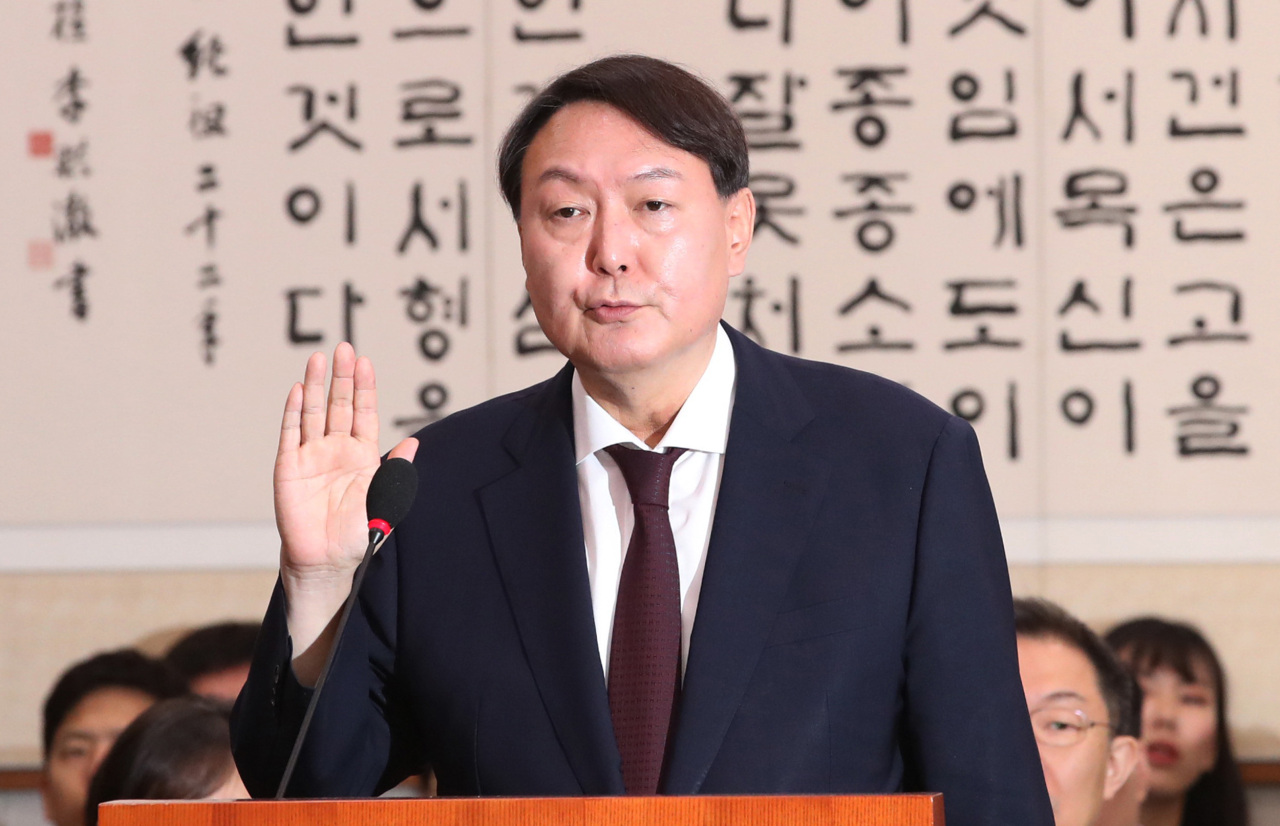
In recognition of his contribution, Yoon rose rapidly through the ranks and was appointed as head of the Seoul Central District Prosecutors’ Office by President Moon Jae-in in 2017. In the following years, he arrested former President Lee Myung-bak and former Supreme Court Chief Yang Seung-tae for corruption and judicial manipulation charges, respectively.
In 2019, President Moon appointed him as prosecutor general for his performance in investigating corruption.
Fall out with Moon administration
But Yoon’s honeymoon period with Moon was cut short when he launched an investigation into the family of Justice Minister nominee Cho Kuk, who was Moon’s close aide.
Yoon’s investigation into allegations that members of Cho’s family had illegally invested in private equity funds and forged documents for university admissions became a political burden for Cheong Wa Dae and the ruling party, which appointed Cho despite the scandal.
Even after Cho stepped down from the Justice Minister post, Yoon remained be at odds with Moon by investigating Cheong Wa Dae’s alleged intervention in the Ulsan mayoral election and alleged manipulation of the economic evaluation of Wolseong Nuclear Power Plant No. 1.
At the end of his tenure, Yoon’s feud with the then Justice Minister Choo Mi-ae over prosecutorial reform earned him the support of the conservative camp and those against Moon Jae-in.
In 2019, President Moon appointed him as prosecutor general for his performance in investigating corruption.
Fall out with Moon administration
But Yoon’s honeymoon period with Moon was cut short when he launched an investigation into the family of Justice Minister nominee Cho Kuk, who was Moon’s close aide.
Yoon’s investigation into allegations that members of Cho’s family had illegally invested in private equity funds and forged documents for university admissions became a political burden for Cheong Wa Dae and the ruling party, which appointed Cho despite the scandal.
Even after Cho stepped down from the Justice Minister post, Yoon remained be at odds with Moon by investigating Cheong Wa Dae’s alleged intervention in the Ulsan mayoral election and alleged manipulation of the economic evaluation of Wolseong Nuclear Power Plant No. 1.
At the end of his tenure, Yoon’s feud with the then Justice Minister Choo Mi-ae over prosecutorial reform earned him the support of the conservative camp and those against Moon Jae-in.
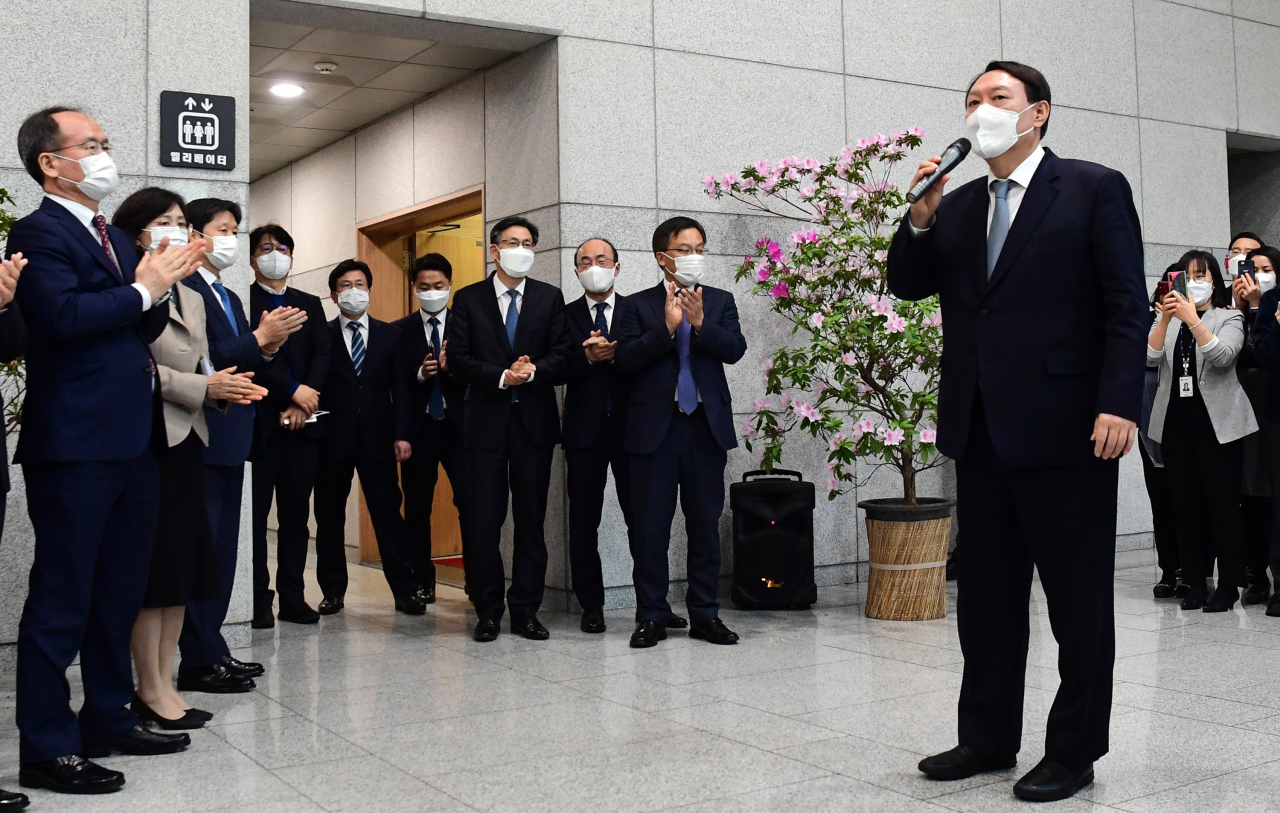
On March 4, 2021, Yoon stepped down, four months before his term was due to end. He said that it was hard to watch common sense and justice collapsing, and that his role in the prosecution was over. President Moon accepted his resignation an hour and 15 minutes after the letter was submitted.
New career in politics
At 1 p.m. on June 29, 2021, Yoon officially announced his candidacy for the 20th presidential election at Maehun Yun Bong-Gil Memorial Hall. During the press conference, Yoon, with a resolute look on his face, criticized the Moon Jae-in administration and the ruling party as “a regime that arrogantly tramples on the law and common sense.”
About four months later, he was elected as the presidential nominee of the main opposition People Power Party, beating senior politician Hong Joon-pyo.
His campaign for the presidency did not go smoothly. He was often exposed as lacking in experience and political nous, with repeated blunders and conflicts with party leader Lee Jun-seok. But at the ballot box, his tenacity was once again rewarded.
“I have no political experience,” he said during his run for president. “(But) the public has seen everything I’ve experienced in the process of realizing fairness and the rule of law.”
“Politics is about solving the pending issues of people’s lives and preparing for the future,” Yoon said. “Fairness and law are essential basic values in solving our pending issues and preparing for the future.”
New career in politics
At 1 p.m. on June 29, 2021, Yoon officially announced his candidacy for the 20th presidential election at Maehun Yun Bong-Gil Memorial Hall. During the press conference, Yoon, with a resolute look on his face, criticized the Moon Jae-in administration and the ruling party as “a regime that arrogantly tramples on the law and common sense.”
About four months later, he was elected as the presidential nominee of the main opposition People Power Party, beating senior politician Hong Joon-pyo.
His campaign for the presidency did not go smoothly. He was often exposed as lacking in experience and political nous, with repeated blunders and conflicts with party leader Lee Jun-seok. But at the ballot box, his tenacity was once again rewarded.
“I have no political experience,” he said during his run for president. “(But) the public has seen everything I’ve experienced in the process of realizing fairness and the rule of law.”
“Politics is about solving the pending issues of people’s lives and preparing for the future,” Yoon said. “Fairness and law are essential basic values in solving our pending issues and preparing for the future.”
http://www.koreaherald.com/common/newsprint.php?ud=20220309000052